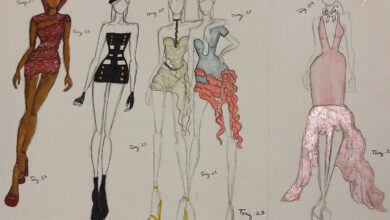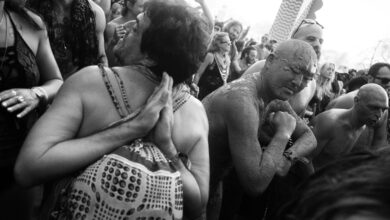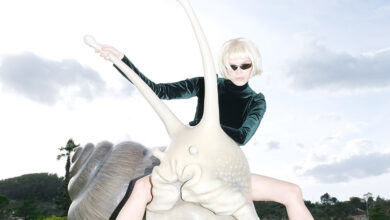Zoot Sees
Choub: Redefining the idea of misfit
Mehdi Mashayekhi’s wooden garments are an artistic take on immigration.
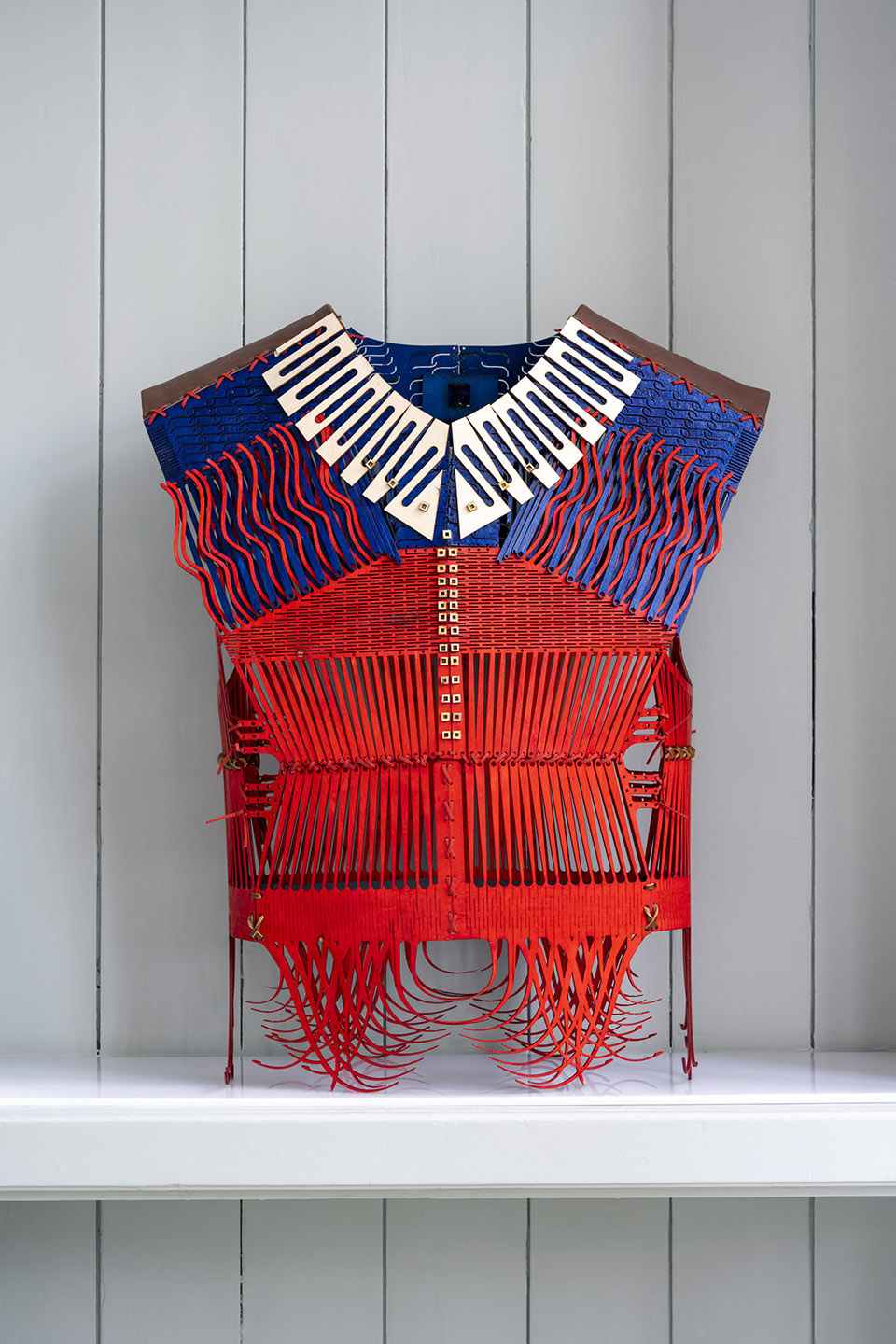
In his latest collection entitled CHOUB II to be exhibited starting on the 19th of August at NDSM Fuse in Amsterdam, Iranian menswear designer Mehdi Mashayekhi showcases designs that visually represents the psychological effect of the social phenomenon of migration. With garments made out almost entirely by wood, the designer managed to create unique and extremely detailed designs that poetically translates the integration process of an immigrant in a new environment.
Words by Fernanda Russomano
The narrative designer Mehdi uses a combination of tools such as storytelling, craftsmanship and technology to address social matters through his designs. Having graduated in Design at ArtEZ University of Arts in the Netherlands, together with his background in science and his passion for material development and technology, the designer is a firm believer that the “best way to modernize fashion” is through the help of high-tech techniques.
“We are in the ‘future’ of the past time, where everything is possible with technology and technology is the best way to modernize fashion. My intent is to blend the old fashioned (menswear tailoring) and modern (high-tech techniques) approaches into a distinct version of the present.”
– Mehdi Mashayekhi for NJAL.
The collection Choub II, that consists of 18 new pieces, is a follow-up to the homonymous one that was presented in the beginning 2022. Choub that means wood in Farsi was the name given to both collections that consists of wooden designs fabricated with the assistance of CAD (computer-aided design) programs and laser cut machines. While the first collection’s main focus was to create wearable clothes made from a combination of plywood 4mm and leather, the latest one consists of objects that are not necessarily wearable, nor even recognizable as garments. With Choub II, Mehdi’s goal is to let the visitors interpret his pieces based on their own imagination.
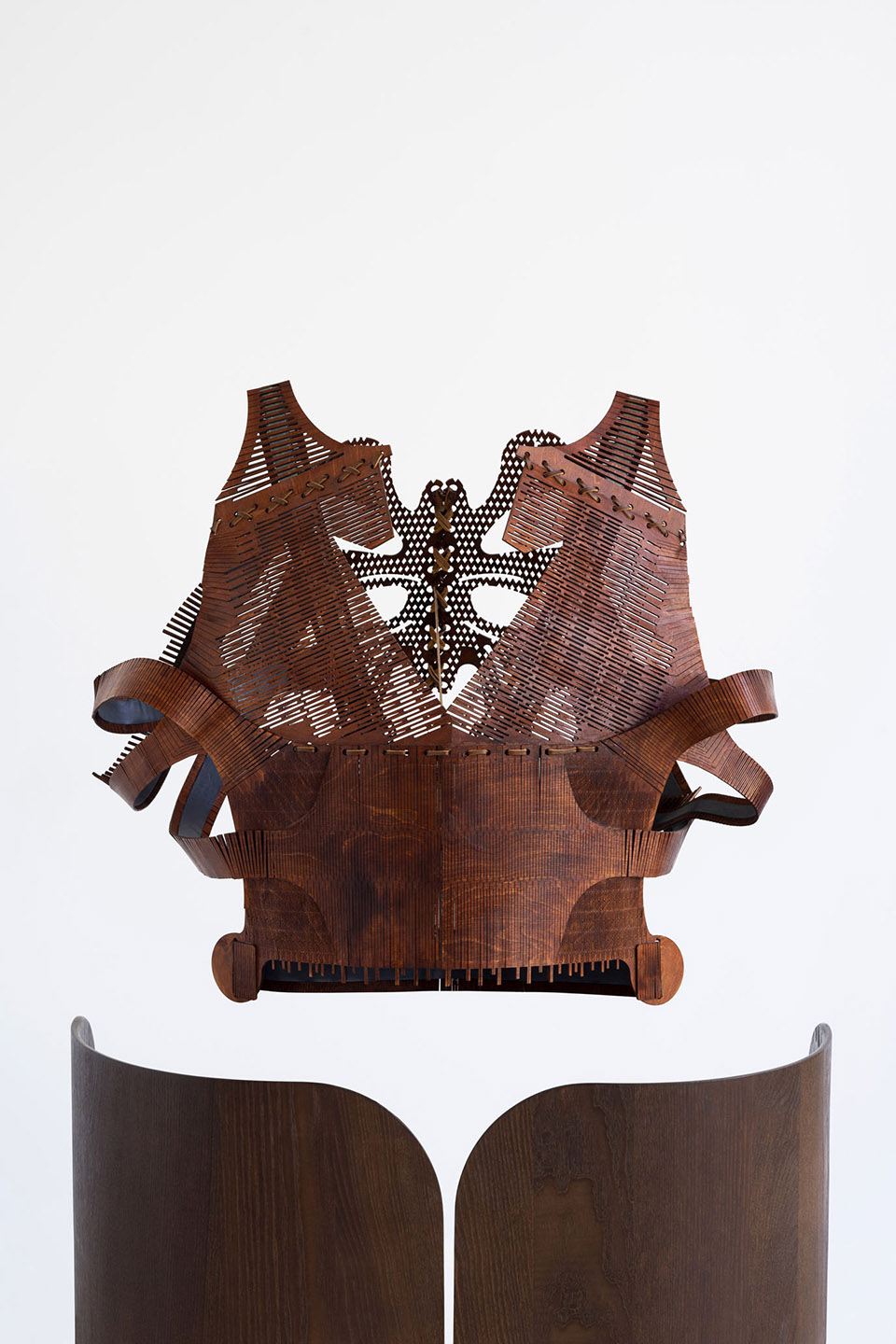
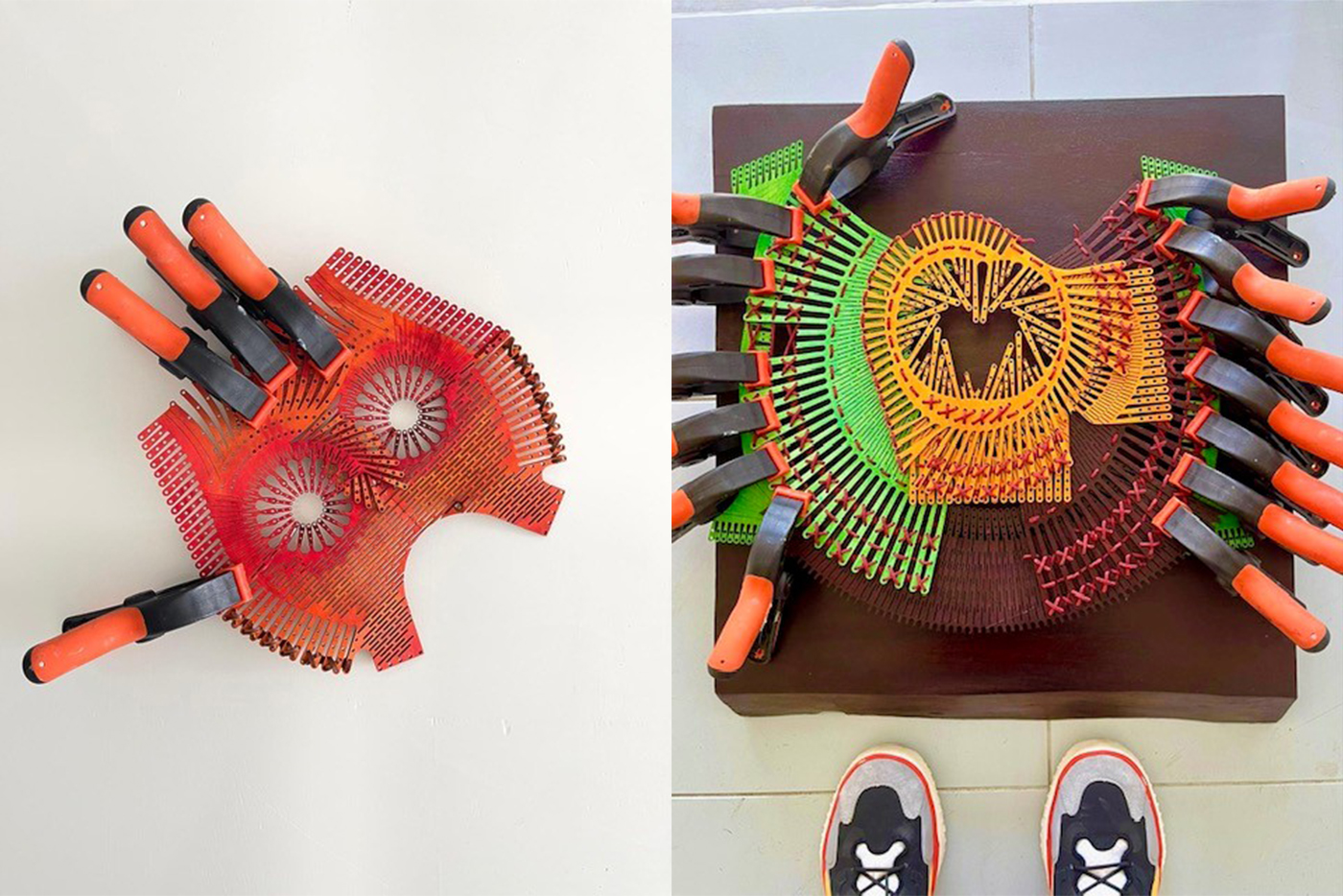

Just as a piece of wood is considered an “unconventional and inappropriate” material for a wearable garment, Mehdi believes that the same idea applies to the feeling of misfit an immigrant has when arriving to a new destination. According to the designer, in the process of integrating into a new society the key is to create a “perfectly adapted character” that manages to inhabit this new environment without losing its core.
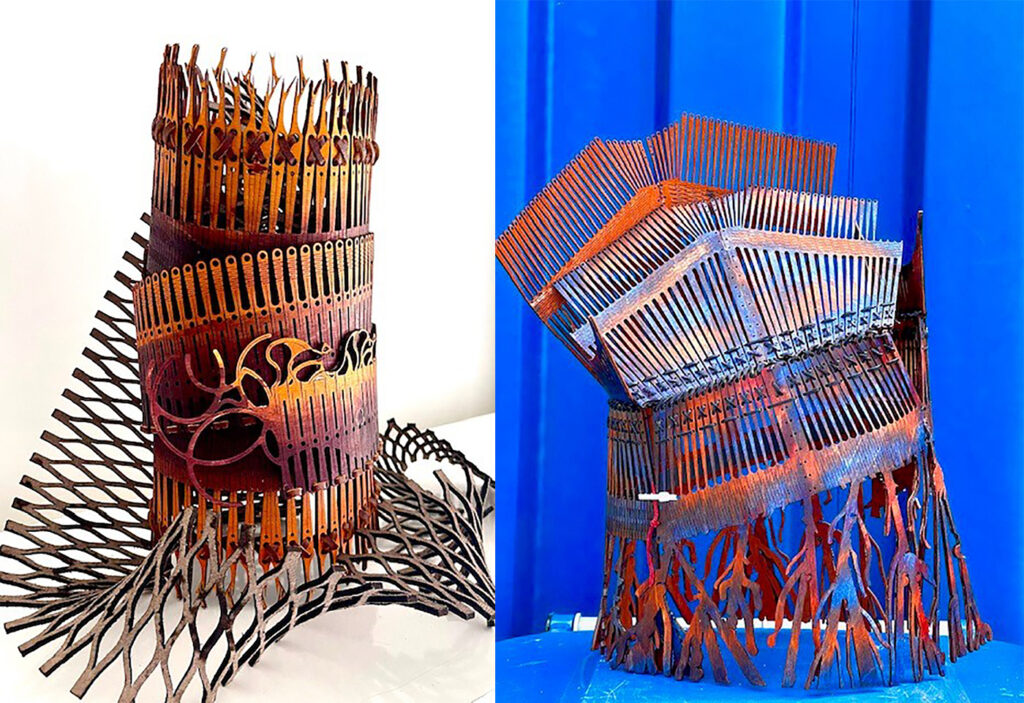
“Your core consists of families, friends, attitudes, values and social structures which have deep, unbreakable roots in your identity. I tend to think it’s worth keeping in mind that countries and nationality are only social constructs which do not physically exist, and in particular that from a biological perspective – we are all of the same race. Once this is accepted, we will realize our responsibility is towards the planet as a whole and not to an arbitrary part or aspect of it… and perhaps we would celebrate our ‘quasi-outsiders’ more.”
– Mehdi Mashayekhi

Through both his collections the designer intended to visually depict this “perfect adaptation” by creating garments with repetitive designs made from plywood that would act like a woven fabric. Just as the core of an immigrant stays unbreakable and strong like hard wood, they are both integrated seamlessly in a new environment, adapting themselves perfectly without losing their essence.

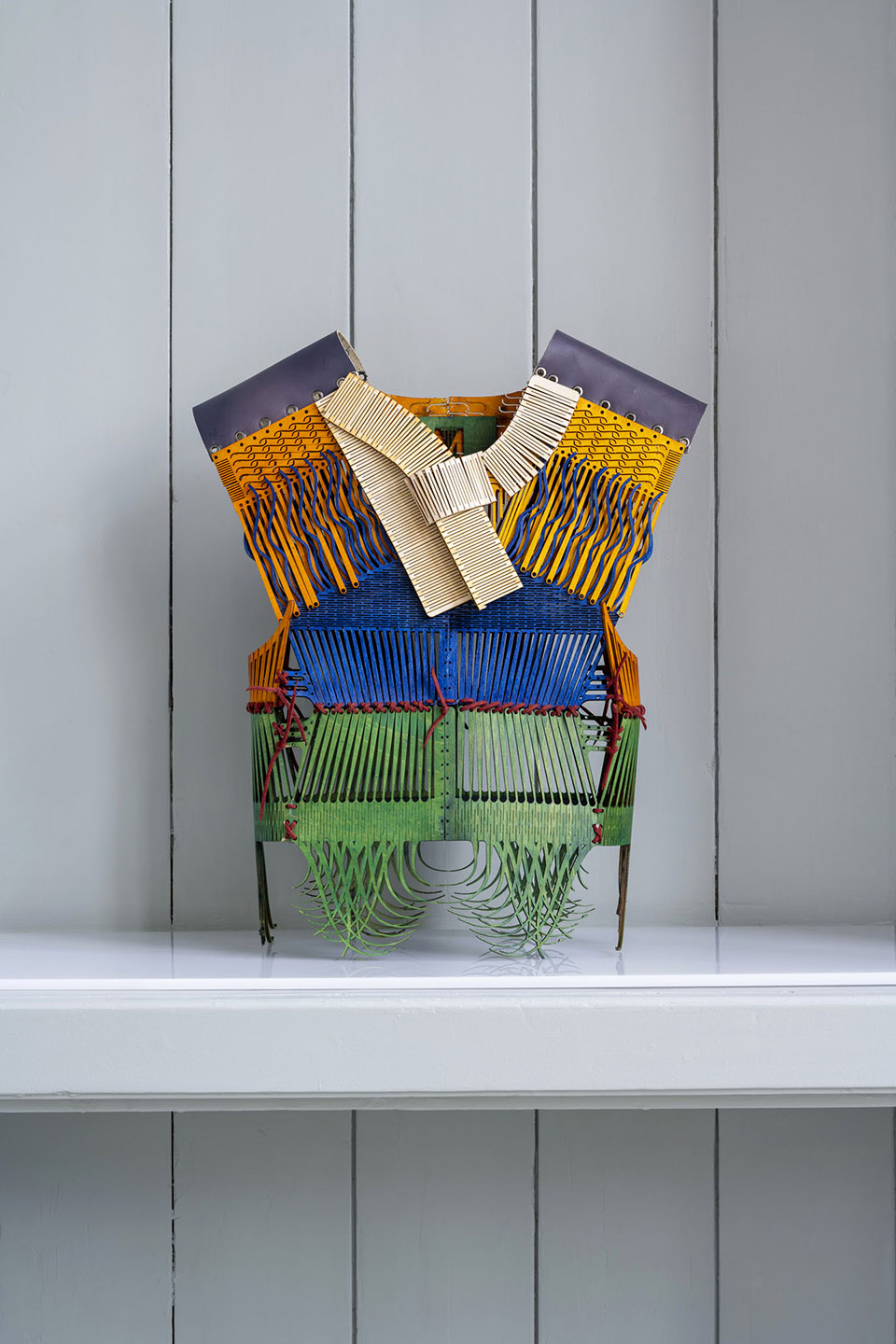
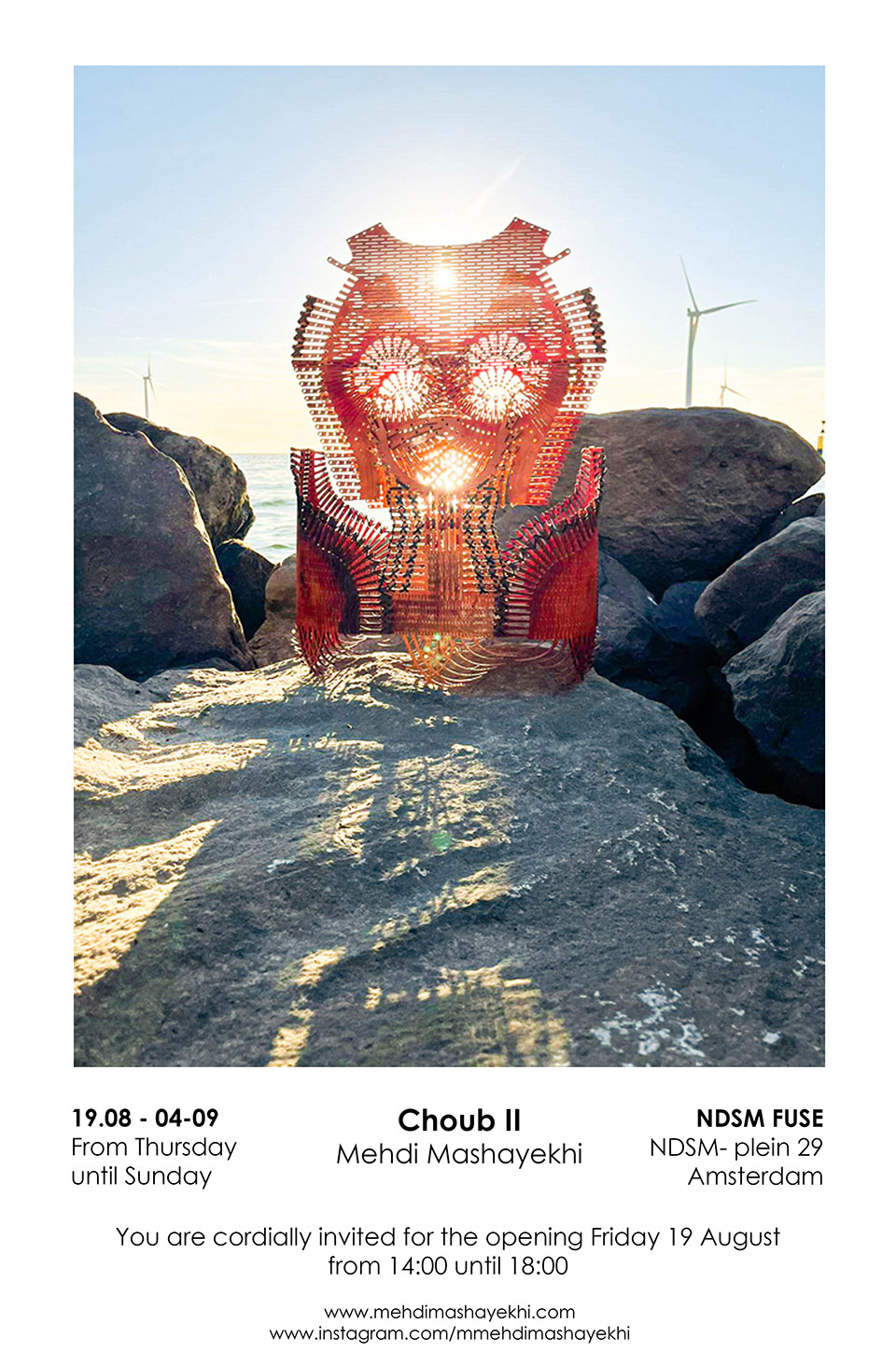
Mehdi Mashayekhi is one of the many emerging designers featured in the platform Not Just a Label (NJAL) and has some of his designs showcased at notjustalabel.com/mehdi-mashayekhi, as well as on his Instagram and website.
All images courtesy of Mehdi Mashayekhi.

